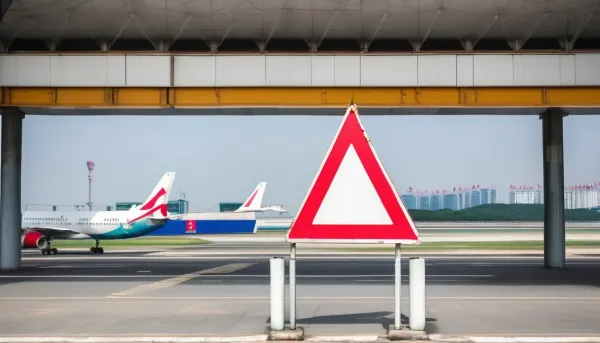Nope, Nope, You Don’t Need to Tip in China
In China, tipping isn't expected—nope, not even at restaurants, taxis, or hotels. It's not part of the culture, and service fees are typically included. So relax, enjoy your trip, and keep your change—there's no need to tip in China!

When traveling to China, understanding local customs can enhance your experience and prevent any unintended cultural faux pas. One such custom that often surprises international tourists is the complete absence of a tipping culture. In China, tipping is not just uncommon—it's a big no. This guide will explain why tipping is not practiced in China and how you can navigate this cultural difference during your visit.
Historical and Cultural Context
The lack of tipping in China is deeply rooted in its cultural and historical context. In traditional Chinese culture, the concept of "face" (面子, miànzi) is significant. Offering a tip might be perceived as suggesting that the person providing the service is in need of extra money, which could be seen as an insult rather than a compliment. This contrasts with Western cultures, where tipping is often seen as a reward for good service.
Historically, China has always valued the idea of fairness and equality. The concept of paying for services rendered, without the need for additional compensation, aligns with this philosophy. In most cases, the price you pay for a service already includes what the service provider expects to receive.
Where Tipping is Not Expected
- Restaurants and Cafes: In China, when you dine out, there’s no need to leave a tip for your waiter or waitress. The bill you receive covers the cost of food and service, and leaving additional money might confuse or even embarrass the staff.
- Taxis: Taking a taxi in China? Don’t worry about adding a tip at the end of your ride. The fare displayed on the meter is all you need to pay. In fact, many drivers might refuse a tip if you try to offer one.
- Hotels: In Chinese hotels, whether budget or luxury, tipping the bellboy or housekeeping staff is unnecessary. The service provided is considered part of their job, and they do not expect any extra compensation.
- Tour Guides: Even in the tourism industry, where tipping is common in many countries, Chinese tour guides do not typically expect tips. The cost of the tour usually covers everything, including the guide’s services.
Exceptions to the Rule
While tipping is generally not expected in China, there are a few exceptions that have emerged in recent years, particularly in more international settings:
- High-End Western Restaurants and Hotels: In some international hotels and Western-style restaurants in big cities like Beijing, Shanghai, or Guangzhou, tipping might be accepted, especially if the establishment caters to foreign guests. However, this is still rare and not necessary unless you feel compelled to do so.
- Private Tours with Foreign Tourists: If you book a private tour specifically designed for foreigners, the guide may be more accustomed to receiving tips. In such cases, a small tip might be appreciated, but it is by no means required.
How to Show Appreciation Instead
If you receive excellent service and want to express your gratitude, there are culturally appropriate ways to do so:
- Verbally Thank Them: A simple, sincere "thank you" (谢谢, xièxiè) can go a long way in showing your appreciation.
- Leave a Positive Review: For tour guides, hotel staff, or restaurants, leaving a positive review online is a valuable form of appreciation that helps their business grow.
- Gifts: In some cases, small gifts are appreciated more than money. For instance, if you have a friendly relationship with a guide or host, offering a small souvenir from your home country might be seen as a thoughtful gesture.
Understanding that tipping is not part of Chinese culture can help you avoid awkward situations and better adapt to local customs. When in China, relax and enjoy your trip without worrying about the tipping etiquette—because there isn’t one! The price you see is the price you pay, and that’s all that’s expected. By embracing this aspect of Chinese culture, you’ll have a smoother and more enjoyable travel experience.





